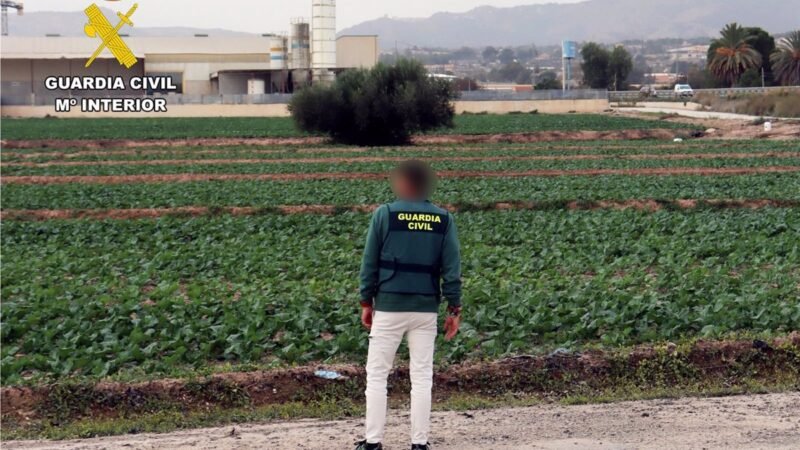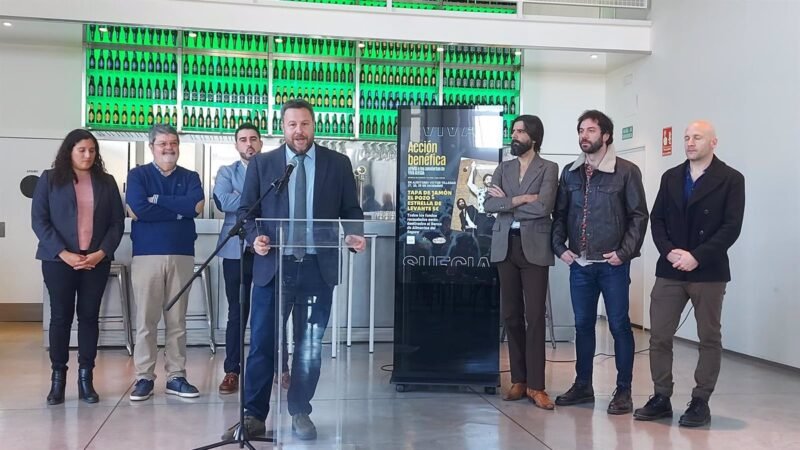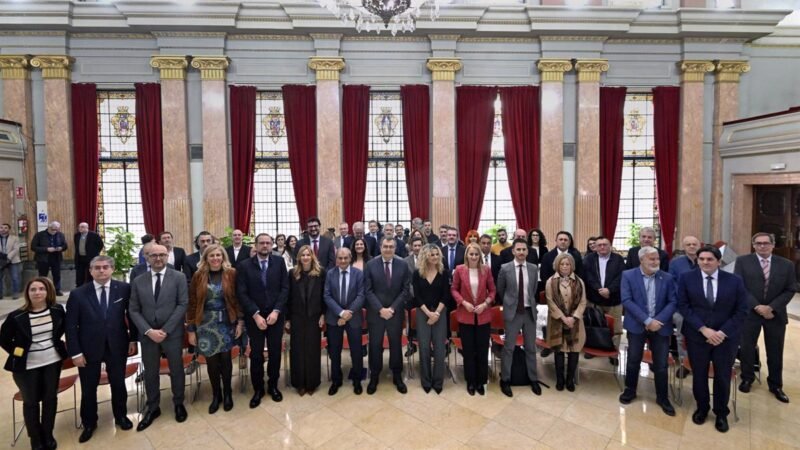El ministro de Educación, Víctor Marín, solicitó este viernes, durante una reunión de control en el Consejo de Gobierno de la Asamblea Regional, «stability presupuestaria» para «continue working on expansions that could reduce 60% of prefabricated classrooms in the coming years». Marín responded to an oral question from the PSOE about the timeline for the removal of prefabricated classrooms from educational centers.
Así, the councilor explained that these classrooms respond to various realities as a «temporary» solution in certain municipalities based on data from the permanent schooling phase, or based on the need to generate spaces in the centers where work is carried out. As the councilor explained, such as the case of Librilla, La Aljorra or the expansion of the IES Mar Menor, or the structural classrooms in places like Los Alcázares, where 4 classrooms of the Petra Sánchez school are being built, or due to the drafting of the project in Bienvenido Conejero to expand the school capacity there.
During the session, Marín also stated that educational centers in the region have already received a new monthly payment for their operating expenses. Marín responded to a question from Podemos regarding the IES José Martínez Ruiz de Yecla, where they cannot turn on the heating in the middle of a cold wave due to delays in the payment of operating expenses.
Marín warned that «as soon as we found out, we acted to solve it the same day», although Podemos criticized them for the delay in the payment of operating expenses, the non-payment of the nursery check, the book check, or the school transportation grants. However, the councilor stated that a new monthly payment for the operating expenses of all public centers in the Region was introduced yesterday.
«All private nurseries have received the subsidy and the amount of the increase in books received by booksellers has been updated, and yesterday a decree granting direct subsidies to 3,900 families who were left without subsidies was published in the BORM,» said the councilor. Likewise, Marín advanced that «we are working intensively, despite the lack of funding,» to implement a budget that allocates 80% of spending to the maintenance of basic social services.
The councilor also reported, in response to questions from the PSOE, on the provision of resources for Vocational Training qualifications. As mentioned, 109 training cycles were created this year with an offer of 43,500 places. «The commitment to Vocational Training is firm, 77.6% of the funds allocated to Vocational Training come from the regional government’s own funds,» he said, accusing the PSOE of «endangering Vocational Training by imposing registration in Social Security on students on internships, creating obstacles for companies.»
Regarding early school leaving, the councilor explained, in response to the PP, that in the last 15 years in the Region, the early school leaving rate has been reduced by more than 50%. «It went from 33.2% in 2007 to 19.2% in 2023,» he explained. The regional government’s objectives, as he announced, are to provide more training opportunities for young people after compulsory education and increase the qualification of students at the end of compulsory education. To achieve this, he explained, they implemented, among other measures, the transition plan between educational stages and the implementation of more personalized and flexible itineraries in compulsory education.
During the control meeting, the PP deputy María Casajús inquired about the plan for the development of the electric transport network, whose balance, according to the Minister of Environment, Juan María Vázquez, «was negative for the interests of the Region.» As the councilor explained, the plan was endowed with 7.5 billion euros, but the investment for the Region «did not reach 1%», leaving aside the proposals made from the Region.
In terms of Social Policy, Minister Conchita Ruiz responded to a question from VOX about the payments made to NGOs that manage the reception of immigrants, stating that such payments are not made, «the competencies are of the State». «We only have strength in integration and inclusion.»
In the field of culture, the Minister of Tourism, Youth, Culture, and Sports, Carmen María Conesa, explained, in response to questions from the PSOE about the non-compliance with the decision of the Superior Court of Justice to start the process of declaring the Monastery of San Francisco de Paula in Alcantarilla as a Cultural Interest Site, that a resolution was published in the BORM to initiate the process of declaring said monastery as a Cultural Interest Site. «This action is not only a legal obligation, but a sign of our willingness to value religious cultural heritage,» she stated.
Conesa also commented, in response to a question from Podemos, on the state of the plans to restore the Castle of the Moors in Cartagena. According to her, there is an «urgent need» to restore this building. She recalled that in November, the restoration works of the access corridors of the north and south semi-bastions and the supporting walls of the castle were authorized. «At the same time, progress is being made in the processing of the castle’s master plan, which is a tool for comprehensive restoration that must be long-term. The process is currently undergoing technical correction,» she said.
In response to a question about the actions of the Ministry of Business, Employment, and Social Economy to combat the underground economy, Health Minister Juan José Pedreño was tasked with responding to the PSOE on this issue.
He affirmed that the underground economy is «a complex challenge for the Region,» but he warned that a study on the matter has been commissioned. The results, he said, confirm that the underground economy accounts for 17.4% of the regional GDP, while in previous years it exceeded 20%. «We are working on a strategic plan against the underground economy,» he said, emphasizing that collaboration between the different administrations «is essential.»
Among the issues addressed is the non-compliance with the law for the full operation of the Santa María del Rosell Hospital as a General Hospital, in response to questions from VOX, which criticized that not all specialties are included in outpatient consultations or medical licenses or «vacations.»
In response, Pedreño emphasized that this hospital «has more than 20 specialties, services have multiplied. Without a doubt, not all general hospitals have all services because we need to be efficient. In recent years, this hospital complex has been able to have 1,000 beds.»








